
Keyword Research for Shopify Stores
Contents
- Key Takeaways:
- Importance of Keyword Research for Shopify Stores
- How to Conduct Keyword Research for a Shopify Store
- Benefits of Using Ahrefs for Keyword Research
- Incorporating Keywords into On-Page SEO for Shopify
- Keyword Research Tools for Shopify Stores
- Yoast SEO Tools for Keyword Strategy on Ecommerce Sites
- Five Facts About Keyword Research for Shopify Stores:
- FAQs about Keyword Research For Shopify Stores
- Other Shopify Guides
Key Takeaways:
- Effective keyword research is essential for the success of online stores, including Shopify stores. Without proper keyword research and SEO, an online store may go unnoticed by search engines and potential customers.
- Keyword research is particularly important for ecommerce websites because the competition is high, and customers are often more specific in their search queries.
- The best tool for keyword research recommended for Shopify stores is Ahrefs. It offers a more reliable and comprehensive analysis than Google Keyword Planner. A 7-day trial of Ahrefs is offered for $7.
- Conducting keyword research involves using the best keyword tool (Ahrefs), identifying target niche markets, finding long-tail keywords, organizing keywords into clusters, and creating content that ranks.
- Incorporating keywords into on-page SEO for Shopify can help increase visibility on search engines and improve website traffic. Search engine optimization (SEO) involves helping search engines understand what your site is about and what it sells.
- Prioritizing existing pages based on existing opportunity for these pages by sorting Google Search Console (GSC) Impressions is the first step to do keyword research for Shopify pages. Determine a primary keyword that is feasible to rank for with your budget on each specific page, and repeat the process for all secondary keywords.
- Keyword research tools analyze frequently typed words on search and shopping platforms and provide lists of keywords and their search volume. Incorporating these keywords into website headings, blog posts, and ecommerce store listings can improve chances of ranking higher on organic search engine results pages (SERPs).
- Shopify Academy offers a course on SEO for beginners.
Importance of Keyword Research for Shopify Stores
As a Shopify store owner, you know the importance of optimizing your online presence to increase traffic and sales. That’s where the crucial role of keyword research comes into play. In this section, we’ll explore why keyword research is important for your e-commerce business. We’ll take a closer look at how keyword research can help improve your online visibility, enhance your target audience outreach, and potentially lead to increased conversions.
The Role of Keyword Research in Ecommerce
Keyword research is a vital aspect in the success of ecommerce businesses. It plays a crucial role in identifying the specific keywords that potential customers are searching for, which in turn can help optimize website content accordingly. By doing so, businesses can attract more targeted traffic to their websites, which can increase conversions and ultimately drive sales. Identifying high-value keywords with low competition through keyword research allows these ecommerce stores to target them effectively and efficiently.
In addition to driving organic traffic and increasing conversions, keyword research can provide valuable insights into the preferences and behaviors of the target audience. Search volume analysis for specific terms can help identify emerging trends that ecommerce stores can capitalize on and adjust their marketing strategies accordingly.
Conducting regular keyword research is essential to stay ahead of the competition. Analyzing search data and identifying new opportunities can help businesses develop content strategies that meet customer needs while optimizing product pages for targeted keywords.
Effective keyword research for ecommerce stores begins with analyzing existing sales pages and prioritizing keywords based on opportunity. Ensuring that primary and secondary keywords are incorporated into on-page SEO elements like meta descriptions, headings, and alt tags can be beneficial.
Utilizing tools like Ahrefs can make keyword research more reliable and comprehensive compared to traditional methods like Google Keyword Planner. Additionally, resources like Shopify Academy courses on SEO for beginners offer further guidance on how to incorporate a keyword strategy into an overall SEO plan.
Developing an extensive list of long-tail keywords has been proven to be highly effective in increasing visibility on search engines. Focusing on the solution that the product offers while using analytical tools like Yoast SEO further hones in on the effective keywords that will get the products noticed by the right audience. In conclusion, keyword research is an essential tool for ecommerce stores to rank higher, gain visibility, and ultimately increase sales.
Benefits of Keyword Research for Shopify Stores
Keyword research is an essential aspect for the success of Shopify stores. It helps in identifying valuable words and phrases that resonate with potential customers, making it crucial for targeting the right audience and driving more traffic to the website. By conducting keyword research, businesses can gain insight into their target audience’s search behavior and optimize their website content accordingly.
The benefits of keyword research for Shopify stores are manifold. It allows businesses to incorporate relevant terms in website content, improving its visibility on search engines and increasing organic traffic. Furthermore, it helps in identifying high-value keywords that enable businesses to create more effective paid advertising campaigns, resulting in more qualified leads.
Through keyword research, businesses can also understand what products or services are in demand among prospective customers, leading to informed product development decisions. Targeting the right keywords can increase the likelihood of converting prospects into paying customers, ultimately boosting sales.
When conducting keyword research for a Shopify store, it is crucial to prioritize pages based on opportunity and identify primary and secondary keywords. Additionally, using tools such as Ahrefs can provide more comprehensive and reliable data than Google Keyword Planner. Incorporating identified keywords into on-page SEO also leads to increased visibility on search engines.
To develop an effective keyword strategy, it is important to analyze frequently typed words for keyword lists and utilize resources such as the Shopify Academy course on SEO for beginners. Additionally, developing an extensive list of long-tail keywords that focus on solving customer problems rather than just product features alone can drive conversions.
In conclusion, unlocking the potential of a Shopify store requires perfecting the keyword research game plan. The benefits of incorporating the right keywords into website content, advertising campaigns, and product development decisions are numerous and can lead to increased traffic, conversions, and sales.
How to Conduct Keyword Research for a Shopify Store
Conducting thorough keyword research is vital in ensuring a Shopify store’s success. In this section, we will cover the best practices for conducting keyword research, including starting with existing sales pages and prioritizing pages based on opportunity. We will also discuss how to identify primary and secondary keywords and move on to non-existing pages, ensuring a comprehensive understanding of successful keyword research.
Starting with Existing Sales Pages
When looking to conduct keyword research for a Shopify store, it is important to start by examining existing sales pages. This approach offers valuable insight into the content and keywords that are currently driving traffic and sales. By analyzing established content, Shopify stores can develop a data-driven strategy for improving on-page optimization and achieving better organic search rankings.
To get started, Shopify store owners should review their existing content to see how their target audience is searching for products or services. This analysis can help to uncover new long-tail keywords that may be used in future marketing campaigns. Based on this information, pages can be optimized with the right titles, headings, meta descriptions, image alt tags, etc., which can further boost search engine rankings.
By prioritizing existing sales pages, Shopify stores can save time and increase their chances of attracting more relevant traffic. Additionally, this approach can lead to creating different types of content such as blog posts, infographics or videos that will continue to drive traffic and engagement while highlighting the store’s expertise in the industry.
It is important to keep the end customer’s needs in mind when developing content for eCommerce platforms like Shopify. Therefore, it is pivotal to develop keyword-rich content based on solid analytics practices and high-quality SEO strategies which ensure long-term growth and success for a store’s brand name globally. By prioritizing pages based on keyword research, Shopify stores can unlock new opportunities for success.
Prioritizing Pages Based on Opportunity
When it comes to optimizing your online store for search engines, prioritizing pages based on opportunity is key. This involves identifying which pages are the most valuable and have the potential to bring in significant traffic and revenue. By focusing your efforts and resources on these pages, you can ensure that you’re maximizing the impact of your keyword research.
To prioritize pages based on opportunity, start by analyzing your existing pages to see which ones are already performing well and bringing in traffic. Look for keywords that are driving traffic to these pages, as well as any missed opportunities for optimization. Once you’ve identified these existing opportunities, you can move on to non-existing pages that have high potential for ranking well in search engines.
To find these high-potential pages, take a look at your competitors’ sites and industry-specific queries. Look for gaps in content where you could insert valuable keywords. By prioritizing these pages based on opportunity, you can ensure that you’re optimizing the key areas of your site that will have the most impact on your overall success.
So don’t let your keywords play hard to get – identify the primaries and secondaries to give your store the VIP treatment it deserves. By prioritizing pages based on opportunity, you can ensure that your keyword research is working as hard as possible for you and driving real results.
Identifying Primary and Secondary Keywords
When optimizing a website for search engines, it is crucial to identify both primary and secondary keywords. Primary keywords are the most important words or phrases that accurately describe a web page’s content. These keywords should be included in the URL, title tag, meta description, H1 tag, and body copy to ensure better visibility on search engine results pages.
Secondary keywords, on the other hand, support the primary keywords and provide context. These may include synonyms for the primary keyword or related terms that users might search for. Identifying both primary and secondary keywords can ensure that a website is optimized correctly for search engines while also providing valuable content to users.
It is recommended to conduct keyword research periodically to refine target keywords throughout the eCommerce store’s lifetime. Selecting long-tail keywords with low competition can increase rankings while still targeting specific audiences. Using Ahrefs for conducting keyword research provides more comprehensive results than Google Keyword Planner, and their 7-day trial offers merchants the opportunity to try before committing to a subscription plan.
Incorporating keywords into a website boosts their on-page SEO success by increasing visibility on user search queries. Several tools, such as frequently typed word analysis and Shopify academy course, can identify relevant keywords. Additionally, optimizing product descriptions to solve consumer problems can generate effective long-tail keyword lists, improving website traffic acquisition metrics.
To start fresh, it is crucial to target non-existing pages in keyword research. In this way, an eCommerce store can identify the right keywords, refine target audiences, and generate a fresh start on Shopify.
Moving on to Non-Existing Pages
When optimizing a Shopify store for search engines, conducting keyword research is crucial. Starting with existing sales pages is a great way to identify high-performing keywords which can then be used to optimize other related pages. However, if moving on to non-existing pages, it’s important to conduct keyword research from scratch.
To do this, start by identifying the primary purpose of the new page and brainstorming relevant keywords that align with that purpose. From there, utilize tools like Ahrefs or Shopify Academy’s SEO course for beginners to analyze frequently typed words and develop an extensive list of potential long-tail keywords. Prioritizing which keywords will have the most impact on search rankings can also help in selecting the best options.
Through this process, the goal should always be creating content that provides value to users while also incorporating targeted keywords into on-page SEO strategies. By doing so, new pages can rank well on search engine results pages and drive organic traffic to a Shopify store.
Benefits of Using Ahrefs for Keyword Research
Ahrefs is a powerful keyword research tool that provides many benefits to users. In this section, we’ll explore some of the valuable benefits of using Ahrefs for keyword research, including its reliability and comprehensiveness compared to other tools. Plus, we’ll take a closer look at the 7-day trial for $7 that Ahrefs offers.
More Reliable and Comprehensive than Google Keyword Planner
Using Ahrefs for keyword research can be more reliable and comprehensive than using Google Keyword Planner alone for Shopify store owners. Ahrefs offers a wealth of features beyond simple ideas for keywords, crawling millions of web pages each day to provide valuable insights into exactly what people are searching for. This allows for truly comprehensive keyword research that takes into account a broader range of potential search terms that Google Keyword Planner may miss.
Additionally, for those who want to try out all that Ahrefs has to offer without committing to a costly subscription, there is a 7-day trial available for just $7.
With all of these unique benefits at their fingertips, Shopify store owners may find that Ahrefs provides the extra edge they need when it comes to boosting their search engine optimization efforts.
A 7-Day Trial for $7 is Offered
If you’re on the lookout for ways to conduct effective keyword research for your ecommerce website, Keyword Research for Shopify Stores may prove to be an invaluable resource. One of the major benefits of utilizing this tool is that users can make use of the 7-day trial for only $7.
During this time, users can explore the full range of Ahrefs’ features without locking themselves into a long-term plan. This low cost makes it an excellent opportunity for users to evaluate the tool’s capabilities and determine its value for their specific needs. Additionally, the trial period provides ample time to gather data and insights before making any further investment. This offer also makes the tool accessible to individuals or smaller businesses with tighter budgets who may not have considered purchasing such a resource before.
But beyond its affordability, there are many other notable advantages to using Ahrefs for conducting keyword research on ecommerce websites. One unique feature is the detailed insights it offers into competition and search rankings, providing users with trustworthy and comprehensive data. Besides, the platform comes with numerous resources that can guide users as they navigate the tool, and Shopify Academy even offers courses designed explicitly for beginners learning about SEO tactics on ecommerce websites.
Overall, whether you’re a new player or a seasoned veteran in the world of ecommerce, Ahrefs has proven to be a valuable asset that’s worth checking out, especially with its affordable 7-day trial available for just $7.
Incorporating Keywords into On-Page SEO for Shopify
Crafting an effective SEO strategy for your Shopify store can be challenging, especially when it comes to incorporating targeted keywords into your on-page content. However, using some simple techniques and best practices, you can optimize your site to improve visibility and drive traffic. In this section, we’ll explore ways to use keywords directly on your site and enhance your store’s visibility on search engines. Get ready to take notes and revamp your on-page SEO!
Using Keywords Directly on the Site
One of the key strategies in SEO for Shopify stores is using relevant and targeted keywords directly on the site. This involves incorporating keywords throughout the website content, titles, descriptions, and meta tags. By doing so, it can help improve site rankings and increase visibility on search engines.
To effectively use keywords on the site, it’s important to start by conducting thorough keyword research. This includes analyzing search volume, competition level, relevance, and commercial intent of various keywords related to your niche and products. Once you have identified primary and secondary keywords for each page, you can then optimize your content accordingly.
By using relevant keywords on the site, you can also improve user experience. This is because it makes it easier for customers to find what they’re looking for. For instance, by including clear and concise product descriptions that highlight unique features and benefits, potential customers are more likely to convert.
In addition, incorporating long-tail keywords into blog posts or other types of content can help attract qualified traffic through organic search. By providing informative content that answers common questions or addresses pain points related to your products or niche, visitors are more likely to engage with your brand and make a purchase.
Overall, using relevant and targeted keywords directly on the site is a crucial aspect of SEO for Shopify stores. By conducting thorough keyword research and optimizing content accordingly, you can improve site rankings, increase visibility on search engines, enhance user experience, and attract qualified traffic through organic search.
Increasing Visibility on Search Engines
For a Shopify store, increasing visibility on search engines is crucial for attracting potential customers. This can be achieved through effective keyword research and incorporating those keywords into the website’s on-page SEO. By identifying primary and secondary keywords, starting with existing product pages, and moving on to new ones, a comprehensive list of keywords can be developed. Ahrefs is a reliable tool that offers a 7-day trial for $7 for conducting keyword research.
To improve visibility on search engines, it is essential to incorporate keywords directly on the site. This includes using them in product titles, descriptions, meta tags, and URLs. By doing so, search engines can easily understand the context of the website content and rank it accordingly. It is also beneficial to analyze frequently searched words to develop an extensive list of long-tail keywords that match the problem your product solves.
To further optimize SEO for e-commerce sites like Shopify stores, Yoast SEO tools are highly recommended. These tools provide guidance in developing effective keyword strategies by identifying primary focus keywords and related phrases to include in website content. By utilizing these strategies, Shopify stores can significantly improve their visibility on search engines, ultimately leading to more traffic and sales.
Keyword Research Tools for Shopify Stores
When it comes to keyword research, having the right tools can make all the difference in the success of your online store. In this section, we’ll explore the top tools available for online store owners to optimize and enhance their SEO practices. We’ll take a look at how analyzing search data can aid in building effective keyword lists, as well as the benefits of Shopify’s Academy Course on SEO for Beginners. With the help of these valuable resources, online store owners can improve their search rankings and drive more traffic to their site.
Analyzing Frequently Typed Words for Keyword Lists
Analyzing frequently typed words for keyword lists is a crucial aspect of crafting a successful search engine optimization (SEO) strategy for an online store. To identify the most popular search terms for their particular store, owners can use tools such as Google Trends or Keyword Planner, as well as analyze their competitors’ websites to see which keywords they are targeting and how successful they are. Additionally, exploring long-tail keywords that are more specific and relevant to the store’s products or services can help attract customers who are searching for those niche needs.
By analyzing frequently typed words, online store owners can tailor their content to meet the demands of potential customers, improving their chances of appearing in search results and boosting traffic and sales. However, it’s important to remember that simply adding popular keywords to a website won’t guarantee success – it’s crucial to incorporate those keywords into on-page SEO strategies as well.
Using strategic tools like Google Trends, store owners can even identify new opportunities for keyword targeting by paying attention to minor trends among consumers. This can help stores appear on long-tail results pages and increase their visibility with customers who have specific needs. To learn more about SEO strategies, interested individuals can take online courses and begin optimizing their stores like a pro.
Shopify Academy Course on SEO for Beginners
Shopify Academy offers a course on SEO for beginners, specifically designed to help e-commerce store owners understand the importance and benefits of conducting keyword research for their businesses. The course aims to establish a solid foundation for optimizing Shopify stores for search engines, highlighting the significance of on-page SEO.
Throughout the classes, students will learn how to conduct keyword research by keeping their business objectives in mind, identifying primary and secondary keywords, and prioritizing pages based on search volume and competition. By incorporating the identified keywords into meta tags, headings, and content, they will be able to improve their on-page SEO for Shopify.
The course provides unique details such as analyzing search queries for keyword ideas and utilizing a variety of SEO tools for keyword research and analysis. The emphasis is also on creating high-quality content that caters to customer problems and using long-tail keywords for better search engine visibility.
Shopify Academy created this course to help e-commerce store owners improve their SEO strategies. Through the course, students will learn how to interpret customer data, conduct better keyword research, and use resources such as the Ahrefs platform and Yoast SEO tools, ultimately improving their online visibility and potentially increasing revenue.
Yoast SEO Tools for Keyword Strategy on Ecommerce Sites
Using Yoast SEO tools can assist in optimizing the keyword strategy of a Shopify store and potentially increase organic traffic. In this section, we’ll discuss two sub-sections that may help develop a strong keyword strategy. First, identifying the problem the product solves can help attract traffic to the store. Then, creating an extensive list of long-tail keywords can aid in search marketing.
Importance of Focusing on the Problem Your Product Solves
When optimizing your Shopify store’s SEO, it’s crucial to understand the importance of focusing on the problem your product solves. By identifying the underlying issues your customers face, you can tailor your keyword research and marketing efforts to meet their specific needs. Generating long-tail keywords that directly address their pain points can drive targeted traffic to your site, resulting in higher conversion rates.
Speaking directly to your customer’s problem can generate more interest and keep them engaged. Customers often search for solutions by typing queries that identify their pain points, so addressing these issues in a clear and compelling manner is essential. However, it’s important to note that your content should focus heavily on solutions rather than promoting products. Customers looking for answers want relevant information, not just sales pitches.
Overall, solving your customers’ problems through appropriate content and keyword targeting is a vital component of any effective SEO strategy on any ecommerce platform.
Developing an Extensive List of Long-Tail Keywords for Search Marketing
When it comes to search marketing, developing an extensive list of long-tail keywords is crucial for online stores. By identifying specific keywords that address the needs and pain points of their target audience, businesses can improve their visibility on search engines and ultimately drive sales. Here are five important points to consider when conducting keyword research:
- Focus on the problem your product solves: Identify the needs and pain points of your target audience, and develop long-tail keywords that directly address those issues.
- Use a combination of primary and secondary keywords: Primary keywords should describe the main topic or theme of the webpage, while secondary keywords provide additional context and specificity.
- Create an extensive list of keywords: Tools like Ahrefs or Google’s Keyword Planner can generate a variety of long-tail keyword ideas, which can then be refined and prioritized based on relevance and search volume.
- Incorporate keywords into on-page content: Use long-tail keywords in page titles, meta descriptions, headers, body text, alt tags, and URLs for improved SEO optimization.
- Regularly review keyword performance: Monitor website analytics data to see which long-tail keywords are driving the most traffic and conversions. This feedback loop allows businesses to continually refine their keyword strategy over time.
Furthermore, developing an extensive list of long-tail keywords requires ongoing effort and attention. Businesses should regularly revisit their list of primary and secondary keywords to ensure they remain relevant. By committing to this process over time, businesses can establish themselves as trustworthy authorities within their niche markets.
Five Facts About Keyword Research for Shopify Stores:
- ✅ Keyword research is a foundational tactic of SEO for ecommerce businesses, and without proper keyword research and SEO, an online store may go unnoticed by search engines and potential customers. (Source: ReferralCandy)
- ✅ A step-by-step guide is provided for conducting keyword research for a Shopify store, which covers how to use the best keyword tool (Ahrefs), identify target niche markets, find long-tail keywords, organize keywords into clusters, and create content that ranks. (Source: ReferralCandy)
- ✅ Keyword research involves identifying search terms that people use to find products, services, or content similar to your website. To do keyword research for Shopify, start with the bottom of funnel existing pages, prioritize based on existing opportunity, determine primary and secondary keywords, and move onto non-existing pages and middle or top of funnel using keyword gap analysis. (Source: Logeix)
- ✅ Search engine optimization (SEO) involves helping search engines understand what your site is about and what it sells. Keyword research is a foundational tactic of SEO, which helps build a relevant list of keywords to use in optimizing your site, product descriptions, and blog posts. (Source: Shopify)
- ✅ Incorporating relevant keywords found through keyword research into website headings, product descriptions, blog posts, and ecommerce store listings can improve a store’s visibility on search engine results pages (SERPs) and increase organic traffic and sales. Keyword research is part of a broader ecommerce marketing strategy called SEO. (Source: Shopify)
✅ Yoast SEO offers tools to make SEO easy and increase organic traffic and sales for Shopify stores at $19 USD/30 days (ex. VAT). Keyword strategy is crucial for ecommerce sites, focusing on keywords that describe the problem your product solves for customers, and keyword research is the activity of coming up with an extensive list of keywords to rank for based on those words. Shopify Academy offers a course on SEO for beginners. (Source: Yoast)
✅ A 7-day trial for $7 is offered by Ahrefs for the keyword research process. (Source: ReferralCandy)
FAQs about Keyword Research For Shopify Stores
Keyword research is an essential process for Shopify stores that aim to increase visibility on search engines and attract potential customers. By identifying relevant keywords, online stores can incorporate them into site content, product descriptions, and blog posts to improve their chances of appearing in organic search results. A step-by-step guide is available for conducting keyword research on Shopify, which covers using reliable keyword tools like Ahrefs, identifying target niche markets, finding long-tail keywords, organizing keywords into clusters, and creating content that ranks based on the keywords. It is important to prioritize existing pages based on their opportunity for driving sales, using GSC impressions. Secondary keywords, which include other relevant search terms, can also be researched and optimized. Non-existing pages and middle or top-of-funnel pages can be optimized using keyword gap analysis. While keyword research can be more cost-effective than relying on paid ads, it does require effort. Ahrefs, which offers a 7-day trial for $7 for the keyword research process, is recommended as the best SEO tool for keyword research over Google Keyword Planner. Yoast SEO is another tool that can make keyword research and SEO easier for Shopify stores, available at $19 USD/30 days (ex. VAT). Shopify Academy offers a course on SEO for beginners.
Other Shopify Guides
Check out our A-Z Shopify SEO Guides:
- A Guide To Robots.txt on Shopify

- Best SEO Apps for Shopify
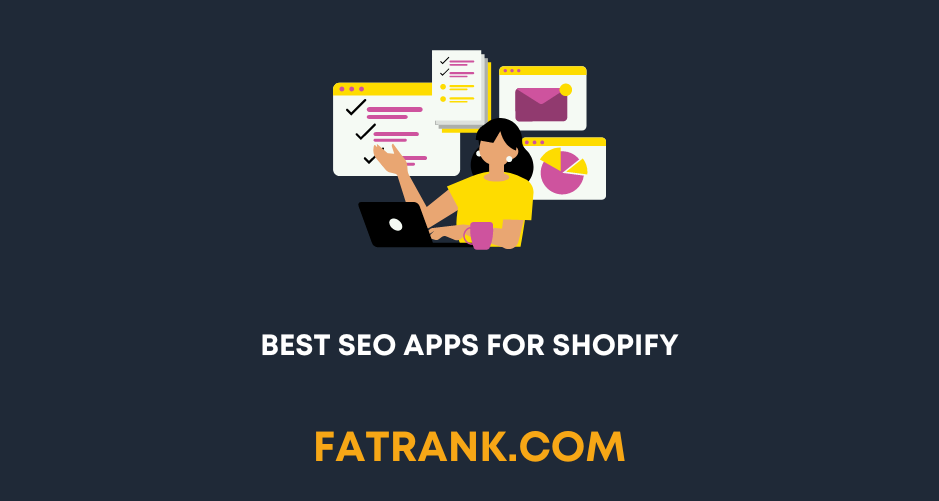
- Best Shopify Themes for SEO

- Blogging on Shopify: How To Do It For SEO Traffic
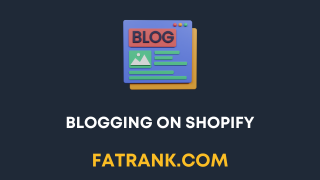
- Can you change the Shopify URL Structure?
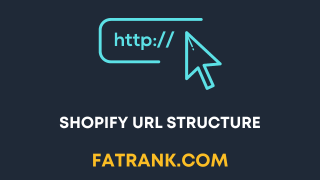
- Common Shopify SEO Issues
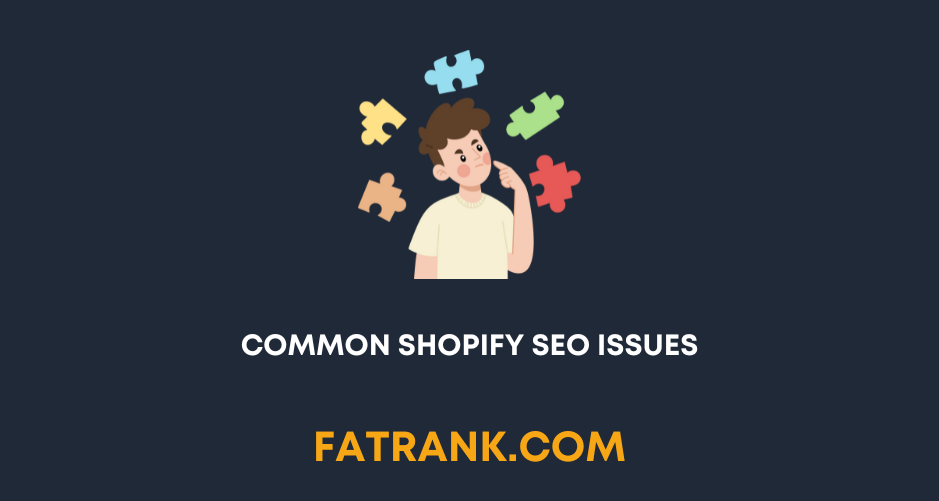
- Does Changing the Shopify Store Name Affect SEO
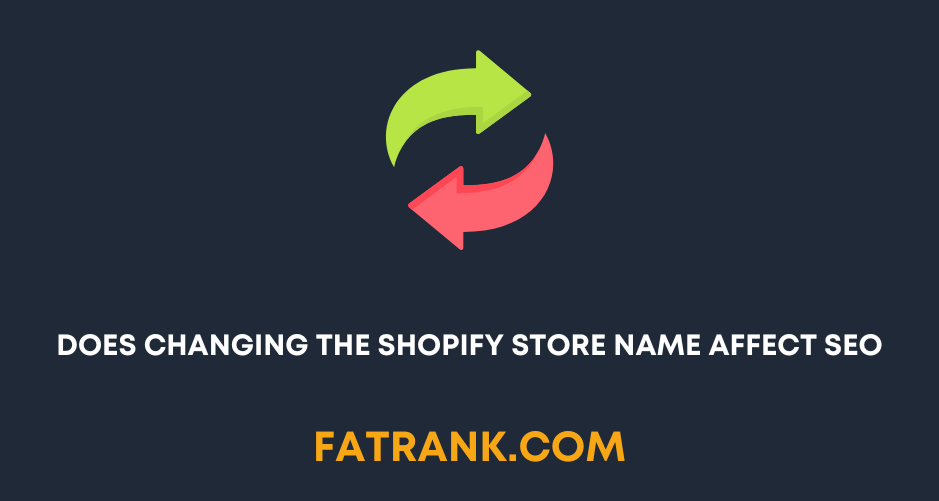
- Guide On Using Metafields In Shopify

- How Much Does Shopify SEO Cost

- How To Add Content To Shopify Collection Pages

- How To Add Keywords To Your Shopify Store For SEO
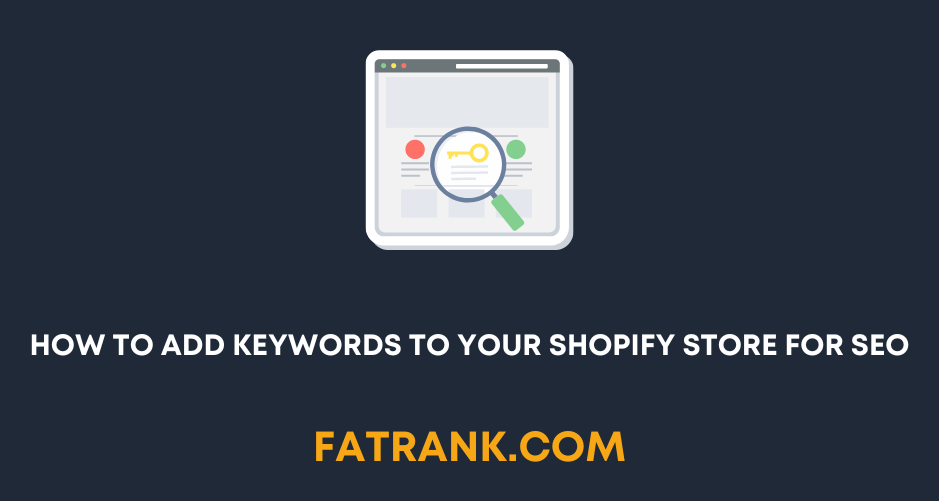
- How To Remove Duplicate Titles From Shopify Store
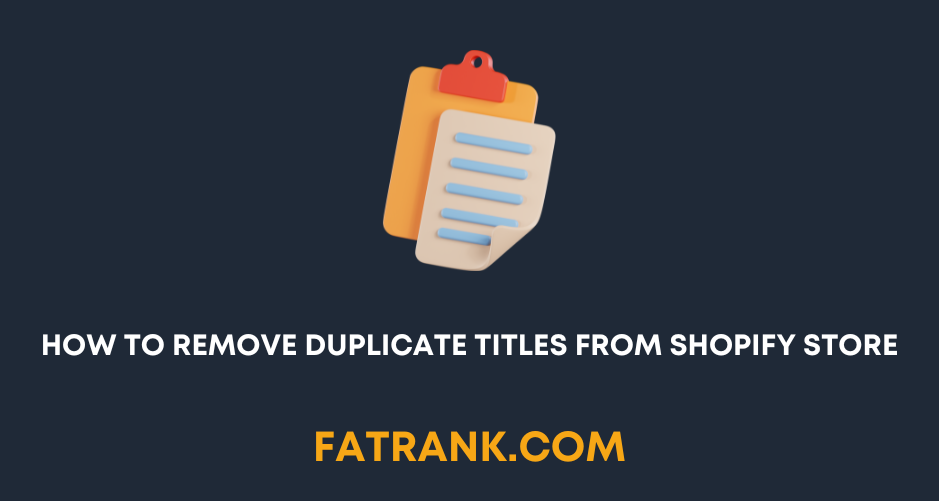
- How to Set up Multiple Shopify Stores Under One Domain

- Improving Search in Shopify Plus
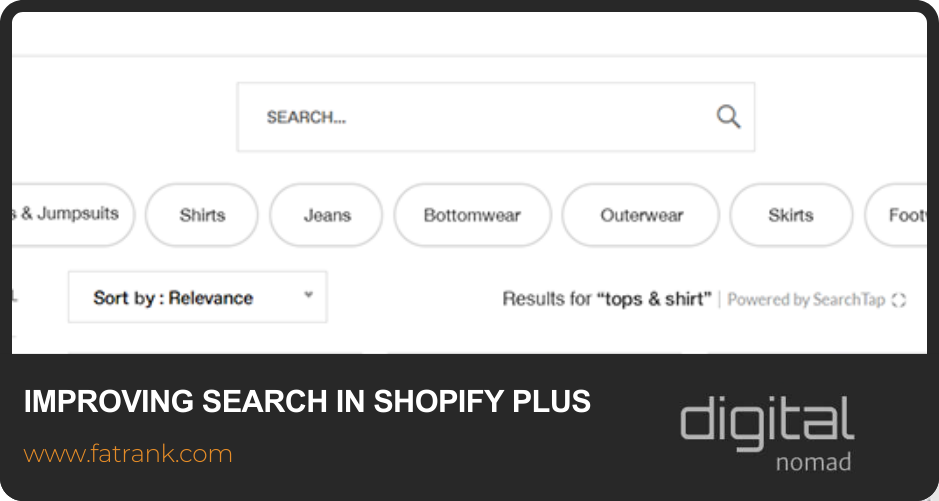
- Is Shopify bad for SEO? A Detailed Review
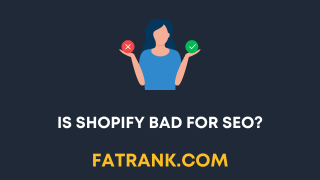
- Keyword Research for Shopify Stores

- Link Building for Shopify: Full Tutorial
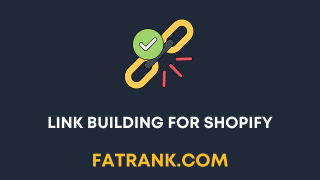
- Shopify Breadcrumbs SEO Issues

- Shopify Collection Page SEO: The Definitive Guide
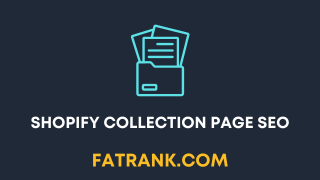
- Shopify Image Optimization: Speed & SEO Guide
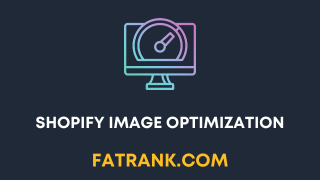
- Shopify International: Multi-Currency & Multilingual Setup
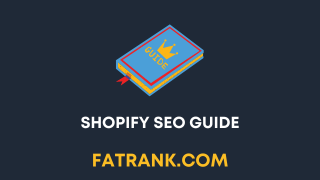
- Shopify On Page SEO Tutorial
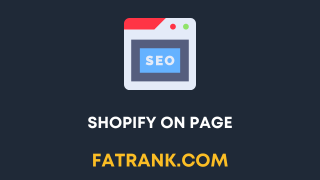
- Shopify Plus SEO

- Shopify Plus SEO: Potential Limitations
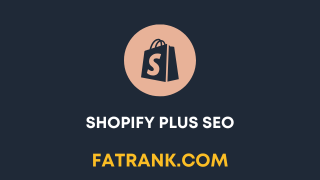
- Shopify Product Tags SEO: Why It's Bad & How To Fix It
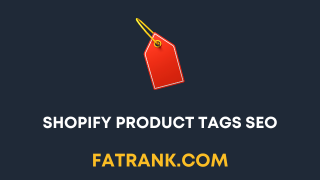
- Shopify Rich Snippets Tutorial: No App Needed

- Shopify SEO Agency
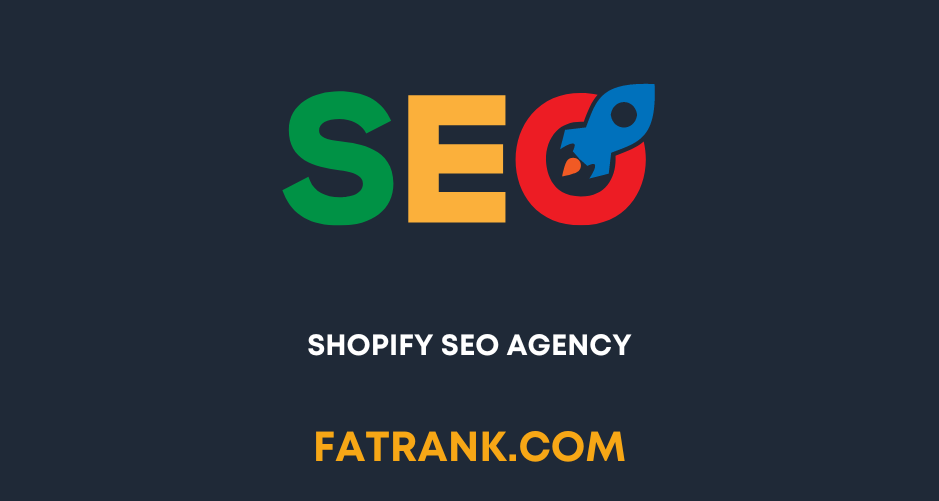
- Shopify SEO Case Study

- Shopify SEO Checklist
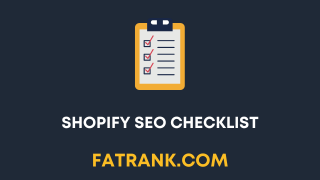
- Shopify SEO: The Definitive Guide

- Shopify Sitemap: Find & Submit Your XML Sitemap to Google
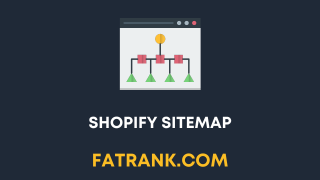
- Shopify Speed Optimization Guide
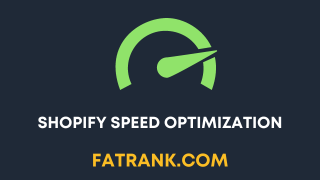
- Technical SEO for Shopify
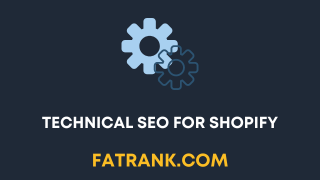
- Why Is No One Buying From My Shopify Store
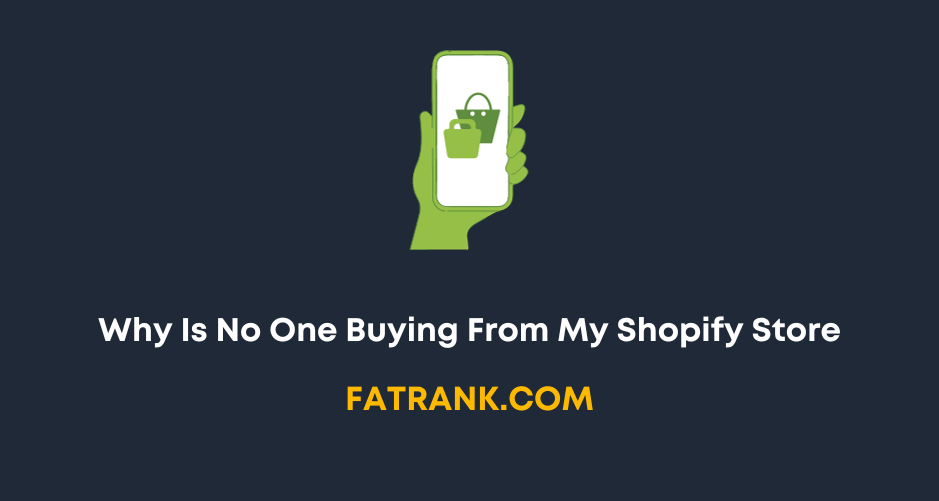
- Workarounds for the Shopify Variants Limit


About FatRank
Our aim to explain and educate from a basic level to an advanced on SEO and Social Media Marketing.
